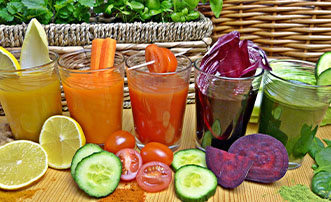Have you ever been on a fad diet? You are in good company if you have. It’s estimated that of the 45 million Americans who diet, 50% of them use fad diets. Some of the current fads are the Keto diet, the Paleo diet, Whole 30, and many more. People hear great results about losing weight on these diets, so they decide to try them too.
What is a fad diet?
Fad diets are primarily used for rapid weight loss that either eliminates a food or food group, add a food in excess, or have a supplement or “miracle” product that promises quick results. These diets usually sound too good to be true and don’t always help you keep the weight off long-term.
Let’s use the juicing cleanse as an example. The juicing cleanse was a big fad diet starting around 2010. A juice cleanse is a type of diet that involves consuming only juices from fruits and vegetables in attempt to lose weight and detox the body. It involves drinking only juice for a period of three to ten days. The juicing cleanse is a great example of a fad diet because it eliminates many food groups, only recommends to consume fruits and vegetables.
Those who advocate for the juicing cleanse claim that since fruits and vegetables are high in vitamins and minerals, drinking juice could increase the amount of nutrients you consume and boost overall health, boost the immune system and increase energy, flush toxins from the body, and improve digestion. Many of these claims are not scientifically proven, meaning there haven’t been any studies to show that these results are indeed true. Some risk associated with the juicing cleanse identified by doctors are:
- Drinking large amounts of juice may be harmful to those with kidney disorders. High amounts of oxalate can increase risk of developing kidney stones and other kidney problems.
- Fruit and vegetable juices are very low in calories. Initially, this will result in weight loss, but the weight loss isn’t sustainable for long periods of time.
- Consuming such low amounts of calories and not having a well–balanced diet can cause many adverse symptoms such as low blood sugar, fainting, weakness, dehydration, headaches, and hunger because the body doesn’t have enough energy.
You can see from just this one example that fad diets help you lose weight quickly but are not sustainable over time. If you are wanting to lose weight and/or be healthy in the long-term, it is recommended to balance all that our body needs by enjoying the foods you love, incorporate exercise, and increase healthy habits.
Tips for a long term healthy lifestyle:
- Variety- Our bodies need the right balance of protein, carbohydrates, fat, and other nutrients. Be sure you are eating a variety of foods to fulfill those components.
- Portion Control- Portions have grown larger over the years. When we see the portion of food on our plate, we think we need to eat all of it. We don’t! We are getting much more calories and fat than we need. Listen to your stomach to know when you are full.
- Exercise- Your body is meant to move! There are so many health benefits to exercise, so get out there and move!




